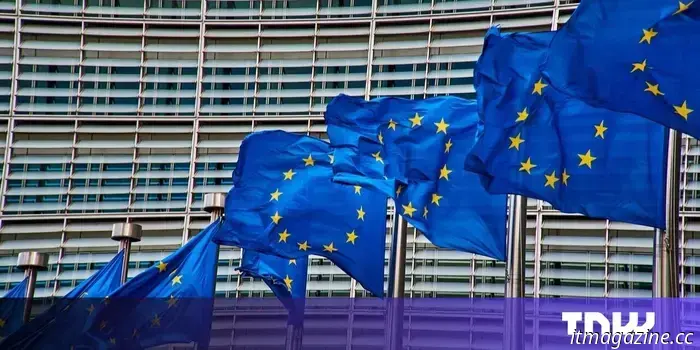
"Europe differs from the US": Technology experts advocate for more intelligent AI regulations.
The EU AI Act is anticipated to unveil its principal regulations for general-purpose AI (GPAI) models on August 2. Nevertheless, with rising worries that excessive regulation could diminish Europe's edge in artificial intelligence, calls to delay the implementation have become more vocal from important stakeholders, including Swedish Prime Minister Ulf Kristersson, Bosch CEO Stefan Hartung, and the tech lobbying group CCIA Europe, which includes members like Alphabet, Meta, and Apple.
During the TNW Conference in Amsterdam on June 20, Eoghan O’Neill, senior policy officer at the AI Office of the European Commission, commented on the possibility of delaying the roll-out. He stated that the Commission intends to finalize its GPAI regulations in July, after which the European Parliament will establish its stance on the standards.
“This is a complex and significant technology, and we aim to get it right,” he remarked. “We require specific obligations to address some of the most impactful or potentially dangerous models under the AI Act.”
O’Neill noted that the guidelines were developed by a diverse code of practice group, including major model providers, civil society organizations, NGOs, academics, AI safety specialists, SMEs, and large European industries. “It's an inclusive tent with all those voices from the stakeholder community,” he mentioned.
However, tech leaders cautioned that the EU must lessen its regulatory load.
“Europe is not the United States,” stated Fabrizio Del Maffeo, CEO of Axelera AI, a chip company based in the Netherlands. “We have numerous languages, various markets, and multiple regulations—both European and local. These are hindering growth as they create barriers, complicating expansion for companies.”
Del Maffeo revealed that his company endorsed the petition for “EU Inc,” a proposal aimed at establishing a standardized legal entity for startups to facilitate operations across EU member states.
EU Inc would operate within the bloc’s 28th regime, a pan-European legal framework designed to assist startups in their expansion across the union. In a January speech at the Davos economic forum, Commission President Ursula von der Leyen mentioned that the rules would integrate “corporate law, insolvency, labor law, [and] taxation” into “one single and simple framework.”
However, Del Maffeo emphasized that regulation is not the only challenge. The focus on initiating new startups must be balanced with attention to scaling existing ones, which he claimed necessitates capital rather than just policy.
Data supports his assertion: Europe comprises only 8% of the world’s scaleups, while North America accounts for 60%, and in the past 50 years, no EU-founded startup has reached a valuation exceeding €100 billion. The region has been the origin of numerous innovations but struggles to transform them into substantial businesses.
“If you examine machine builders, we lead globally,” he noted. “In the automotive sector, we excel, but we are losing momentum. In robotics, we perform well, yet we are also losing steam.”
Participants at the TNW Conference expressed varied perspectives on the future of AI in Europe.
Peter van der Putten, director of the AI Lab and lead scientist at Pegasystems, echoed this sentiment, emphasizing that the EU needs to be more appealing for both domestic and international investments.
Funding statistics highlight the investment disparity: European startups secured approximately $52 billion (€44 billion) in venture capital last year, significantly less than the $209 billion (€177 billion) raised by their US counterparts.
“Investment could originate from the EU, but also from the US,” van der Putten observed. “Regulations might be tweaked to make it easier and more compelling for funds departing the US to flow into Europe.”
Elise de Reus, co-founder of Cradle, also pointed out that Europe is well-positioned to attract talent back from the US. She noted a growing trend of European engineers returning from Big Tech jobs in the US, motivated by purpose-driven work and an improved quality of life.
“We're welcoming back European engineers who previously worked at Big Tech firms like Facebook in the US to aid in tackling societal and global issues such as climate change,” she stated.
“We might also be a bit too modest. We should prioritize measuring happiness instead of GDP, which is not a sustainable measure. I believe we shouldn't simply adopt the American system.”

"Europe differs from the US": Technology experts advocate for more intelligent AI regulations.
At the TNW Conference, industry experts emphasized the need for improvements to the EU AI Act, cautioning that these enhancements are crucial for realizing Europe’s AI potential.

.jpg)